
Business is slow for Ruby Private Investigator, Deirdre Bug. She’s on the verge of switching industry when she gets a call from an anxious young man. "Some class methods have gone missing," he tells her breathlessly. "I need your help."
Deirdre takes the case and begins exploring Ruby objects behind the scenes. Though she thinks she's on familiar ground — Ruby's object model, method lookup — she's about to discover that she really has no clue.
Nadia is CEO at The StoryGraph. Before that, she co-directed Ignition Works, a company that did a mix of in-house product development and software consultancy, helping large firms to manage their cloud platforms. She previously worked at Pivotal and originally learnt to code at Makers Academy in London. She maintains speakerline.io in her spare time.
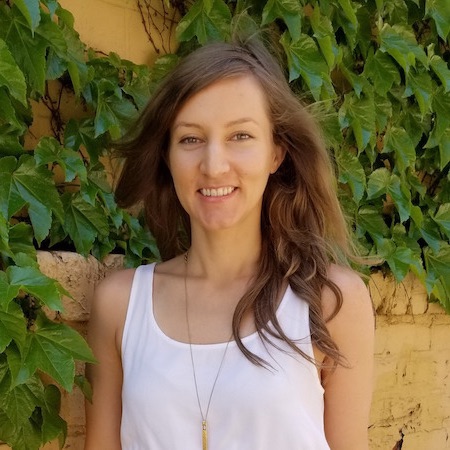
How are you supposed to sing along with your favorite TV theme song every week if it doesn't have lyrics? At my house, we "meow" along (loudly). We also code, so I built 'Meowifier' to convert any song into a cat's meows. Join me in this exploration of melody analysis APIs and gratuitous cat gifs.
I built an application that takes a song's audio and outputs a new audio file with that song's melody sung by cats. It's a technical feat. It's hilarious. It's beautiful. It's a new way to waste time on the internet.
Beth is a software engineer who loves Ruby, little-known APIs, handcrafting SQL queries, and as many monitors on her desk as possible. She’s also a former airborne cryptologic linguist for the US Air Force, fluent in Mandarin. Things you can ask her about include cats, board games, karaoke, and building applications that convert songs into auto-tuned cat meows. Things she'll have to kill you if you ask her about: the airborne linguist part. Also, she likes to make emojis look like they're farting. 🐈💨

Software development is the anticipation of a thousand dangers: regressions, edge-cases, exceptions, attacks, downtime, the list is endless. Drawing from a wide range of disciplines, we’ll build a simple model for quantifying danger, explore why the human brain is so bad at it, and examine some practical applications for our development processes. There will be at least one science.
Daniel has been writing Ruby/Rails for about 10 years. In recent years he has been helping to organise the Christchurch Ruby meetups and serving as secretary on the Ruby New Zealand committee. He lives in 🇳🇿 with 👨👩👧👦👶, and enjoys 🏃, 🍺, and 🔎 📖 ἡ κοινὴ. Much like Ruby, he tries to be optimised for happiness — both his own and other people's.
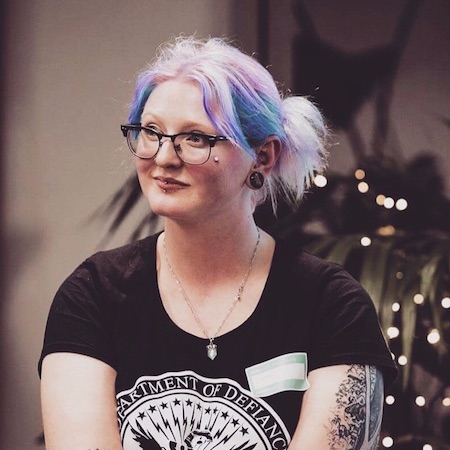
Eliza is an Infrastructure & Security engineer, cyber witch and co-founder of social enterprise Assembly Four who created sex worker friendly social network Switter and inclusive modern advertising platform Tryst.
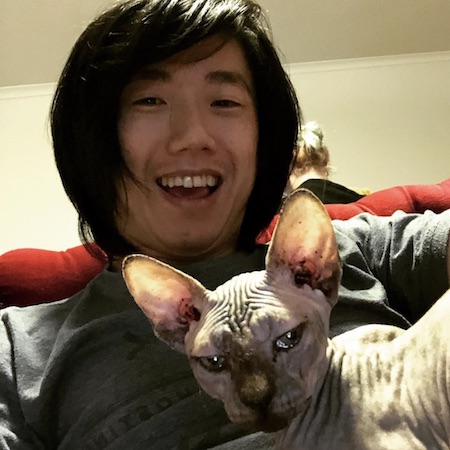
Mostly known as “chendo”, Jack is a software-oriented problem-solver who occasionally enjoys making computers do his bidding. He is one of the co-founders of a social enterprise called Assembly Four, which aims to build modern products and services for sex workers around the world. When he’s not yelling at computers, you can find him bouldering, playing video games, or go karting.
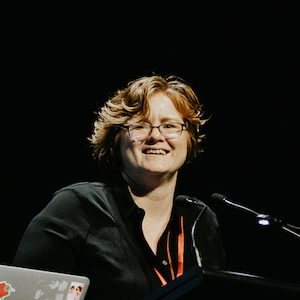
How can we minimise our software’s contribution to climate change? How do we make software that can withstand climate change-related disasters? How do we deal with the knowledge that we’re careening towards catastrophe?
I don’t have all the answers, but let’s do some maths about it.
Merrin is a Ruby developer with a background in design, social enterprise, and the electricity industry.
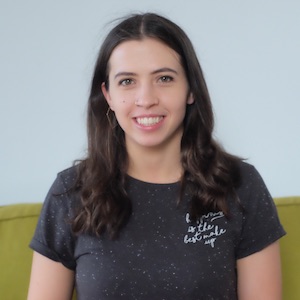
Let me guess, your code is awesome but no one else gets it? You need a data visualisation! Complex concepts can easily be explained through visual information. There are four types to choose from storytelling, status, analytical and exploratory. I’ll help you find the perfect one.
Mila is a data geek that loves data visualisations. Especially if the data visualisation is related to cats. Ruby is still her favourite language because of the community and how expressive it is. When she's not coding, you’ll find Mila cruising on an electric skateboard.
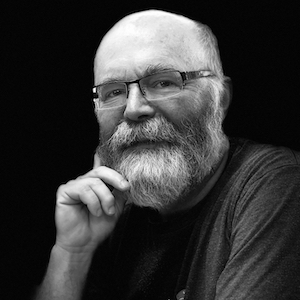
This is a sentiment many Rails developers have experienced whilst reading a legacy codebase, trying to glean the motivations behind the code or simply understand what it is meant to do. This talk turns that perspective on its head and asks, “what can I do to prevent this scenario?”
Keith Pitty has been developing software professionally for more than three decades. Since 2000 he has maintained a keen interest in Agile approaches and for the last ten years has made many contributions to the Australian Ruby community. He has been fascinated by how developers consider other people when developing software since his early days of programming on mainframes. Away from computers he enjoys golf, is a cricket tragic and a passionate Collingwood supporter.
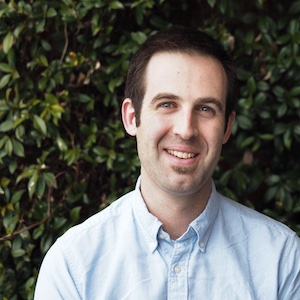
/Veni, vidi, view-ci/ – I came, I saw, I left the views in a mess.
With server-rendered HTML still delivering most of the web, our views deserve more than a grab bag of helpers.
Come along and learn the tools and techniques to conquer the design challenges that a complex view layer presents.
Tim Riley is a partner at Australian design agency Icelab, and a core developer of dry-rb and rom-rb. He’s excited by small libraries, first-class functions, and pushing forward web app development with Ruby.
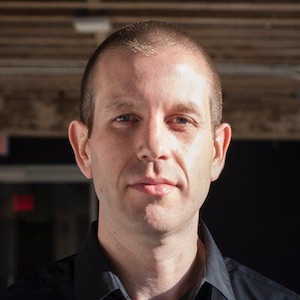
In your grandparents’ attic you discover a mysterious old computer. You boot it up and discover it runs Ruby, but doesn’t support negative numbers! How can you implement negative numbers in an elegant way? We’ll explore two solutions and discover how important it is to pick the right representation.
Tom is a computer scientist and programmer. He has lectured on optimising compilers at the University of Cambridge, co-organises the Ruby Manor conference, and is a member of the London Ruby User Group. He is currently the CTO of FutureLearn, an online learning platform.
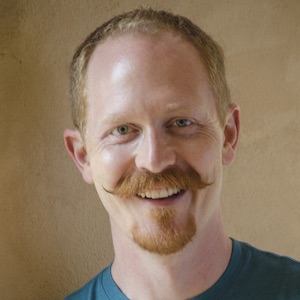
There’s a thread amongst all skilled practitioners: specific habits, routines, and processes that wrap uncertainty and create confidence. Oscar-winning actors rehearse, pro-drivers do laps, chefs prep. This talk will help you recognize and design habits and routines that embed confidence in the body.
Adam is not a Fortune 500 CEO, award-winning book author, or Nobel Prize recipient. But, he’s an actor turned software engineer who co-founded ZEAL, a people-centric process-focused consulting company located around the United States.
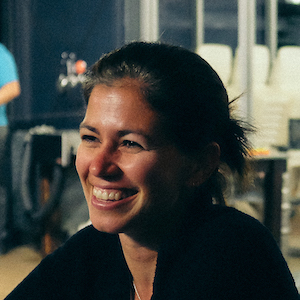
In this talk we will discuss algorithmic thinking in everyday life in language we can all understand. We will explore widely applicable algorithms, and how they reveal themselves in our everyday lives, so that we better understand what when and how we can use them in our programs.
Elle is a full stack web developer with more than ten years experience writing Ruby and Rails. Currently at Blackmill, previously she was Development Director at thoughtbot New York. Elle believes in writing clean code, driven by automatic tests, with agile practices, an even work/life balance, and a respectful and inclusive team culture. Recently, she developed and ran the apprenticeship program for Hooroo, up-skilling less experienced developers. When she is not immersed in the Ruby community, she is probably immersed in water, or lately, in bread flour.
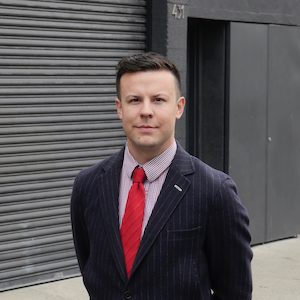
In the recent years, microservices have been an investment among many engineering teams as they scale. They are often the default of many new companies.
But how has that gone wrong? This talk will dive into how one company of ~100 engineers refined their thinking and their Rails app for the better.
Kelly Sutton is an engineering manager at Gusto. In the past, he helped create LayerVault, Designer News, and a blog for college students. He is currently based in San Francisco, CA. He regularly writes blog posts about software engineering at https://kellysutton.com

Who loves getting paged at 3am? No one.
In responding to incidents – either at 3am or the middle of the day – we want to feel prepared and practiced in resolving production issues. In this talk, you’ll learn how to practice incident response by simulating outages in your application.
Kelsey Pedersen is a software engineer at Stitch Fix on the styling engineering team. She builds internal software their stylists use to curate clothes for their clients. She works cross-functionally with their styling community and data science team to build new features to better assist their stylists. She had a former career in sales and as a Division I rower at UC Berkeley.
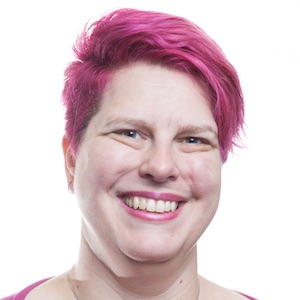
Come listen to me talk about my own invisible neurodiversity, and what it has taught me about being a good employee and becoming more effective because of who I am, not in spite of it.
Heidi is a developer advocate with LaunchDarkly. She delights in working at the intersection of usability, risk reduction, and cutting-edge technology. One of her favorite hobbies is talking to developers about things they already knew but had never thought of that way before. She sews all her conference dresses so that she’s sure there is a pocket for the mic.

Communication is one of the most difficult skills to master in software development. There are many shortfalls in communication — both written and spoken — that have an impact on how you are perceived. Harry the Hedgehog will uncover some of those shortfalls and how he overcame them.
Laura is a software engineer with a passion for clean code and oxford commas. She’s passionate about creating a better world through code, kindness, and understanding. When she isn’t coding, she enjoys rescuing hedgehogs, making things, and playing games.

If you are like me and you don’t know your MRI from your RBX, you think a Truffle Ruby sounds delicious and panic when someone mentions JRuby, then this talk is for you. We will delve into JRuby and figure out what it is, why it is and how it is different from 'normal' ruby and other alternative Ruby implementations.
I am a Ruby developer working out of Melbourne. I am awful at writing bios, I like tinkering with electronics and I know my chiffonade from my chicory.
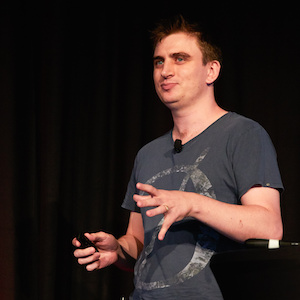
REST-ful, more like stress-ful am I right? What if I told you you could build amazing APIs your cat would be proud of with GraphQL instead.
Let’s take a look at how to go about implementing a GraphQL API that’s evolvable and empowers your team.
Tom Ridge is a developer currently residing in Brisbane, Australia. A father of twins, he’s recently organised a Rails Camp, was Vice President of Ruby Australia and has co-organised his local meetup. Somehow, he’s still not sure why he has so little free time.

In one timeline a quick path to clarity. In the other a painful journey trying to uncover the obscure intent of a line of code. The only difference between these two realities? The revision history…
This is a story about revision histories and their impact on software maintainability. Think Sliding Doors, but with more Git!
Tekin is a senior freelance consultant who’s been shipping Ruby code for over a decade. He’s worked with teams, large and small: from Government agencies (GDS) to listed startups (FreeAgent), and the world’s oldest and largest Co-operative (Co-op Digital). He also runs the North West Ruby User Group in Manchester, UK.
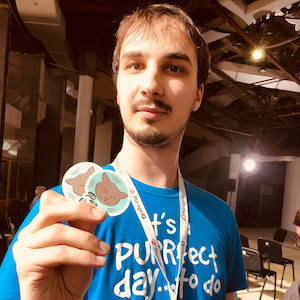
Does your network only let through HTTP connections? No problem! Let’s hijack some sockets from incoming HTTP connections and use it to smuggle any kind of traffic through an HTTP session! Concurrently! In Ruby!
Warning: your infosec team already does not like me, but I have some cute stickers.
David is a Software Engineer working for Red Hat. His first language is C, but fell in love with Ruby in 2012 and now codes in it for a living.

Pair programming can be hazardous if you’re from an underrepresented group. Bad pairs will keyboard-hog, ignore your ideas, and talk down to you. In this talk, you’ll learn how to rescue pairing sessions from bad power dynamics – whether you’re a well-intentioned jerk or their long-suffering pair.
Betsy Haibel is the founding CTO of Cohere. She writes fiction and nonfiction in English, Ruby, and Javascript – among other languages – and co-organizes Learn Ruby in DC. Her lifelong ambitions? To meet a red panda, and to break down barriers between “developers” and “users.”
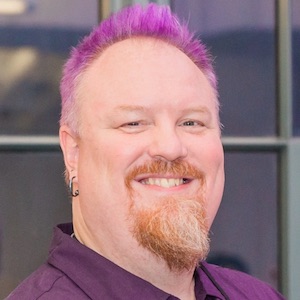
Being a good developer isn’t just about slinging code; we’re part of a community. Interacting with others in a community means feelings are involved.
In this talk you’ll learn how emotions are affecting you by modeling them as an API and looking at the code.
John the co-founder and CTO of Data Simply and a Senior Developer at Privia Health. He’s been programming professionally for two decades, in Perl, Java, PHP and Ruby. In recent years he has also been supervising workshops called “Purpose, Passion, Peace” which helps people get deeply in touch with themselves and liberated from past traumas. He has fused his expertise from these disparate areas into a new way of thinking about them both.
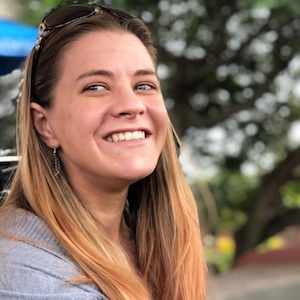
With a background in education and science communication, Caitlin loves learning new things and solving problems. She works as a Rails and Ember developer at TwoRedKites in Brisbane, and is a member of the Ruby Australia Committee. When she isn’t writing code or organising community events, she loves to eat cheese pizza and binge watch videos of cute animals.

Rose has been working as a software engineer since 2011. She currently works at Flick, an electricity wholesaler. In the past she has been involved with social enterprise, Rails Bridge and Youthline. This year Rose completed her Masters in Creative Writing with an essay collection on her experience of contemporary Chinese migration to Aotearoa. Her writing has been published in Mimicry, Pantograph Punch and Sport. When not in some type of text editor, Rose likes to cycle, do yoga and perfect her technique for Korean fried chicken.